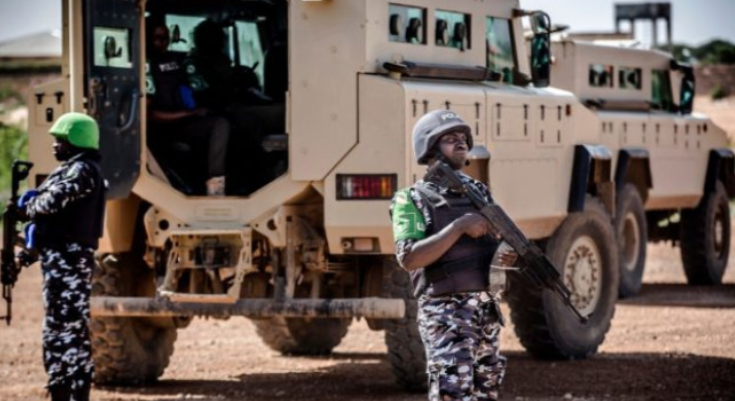African Union Support and Stabilisation Mission in Somalia (AUSSOM) (GS Paper 2, IR)

Overview
- The United Nations Security Council (UNSC) recently endorsed the African Union (AU)'s African Union Support and Stabilisation Mission in Somalia (AUSSOM), aiming to tackle Somalia's security challenges.
- These challenges stem from the long-running civil conflict and the presence of extremist groups such as Al-Shabaab and Islamic State (ISIS).
- The initiative, aligned with the UN's peacekeeping efforts, was introduced under Resolution 2767 (2024).
- The mission will take over from the African Union Transition Mission in Somalia (ATMIS), which concludes in December 2024.
- The AUSSOM mission is designed to continue the process of stabilizing the region, with a particular focus on fighting terrorism and restoring order.
Mission Details
- Personnel: The mission will involve the deployment of up to 12,626 personnel, including around 1,040 police officers, with a mandate extending until June 2025.
- Mandate: AUSSOM's goal is to support Somali forces in maintaining security and combating terrorism, continuing the work started by ATMIS. It aims to help stabilize Somalia after nearly three decades of civil war and militia violence.
- Financing: A hybrid funding model has been adopted, with 75% of funds coming from the UN and 25% from the AU and its partners, ensuring consistent funding for peace operations on the African continent.
- Challenges: Some countries, like Burundi and Ethiopia, will not participate in AUSSOM due to internal and regional tensions. There are also concerns over the financial burden on the UN, as voiced by the US, which abstained from voting on the UNSC resolution due to concerns about UN disproportionate funding.
Historical Context of Somalia's Civil War
- The roots of Somalia's ongoing conflict trace back to 1988, during the authoritarian rule of President Siad Barre, which ended in 1991, triggering widespread instability.
- The collapse of the Barre regime led to a power vacuum, with various factions and clans vying for control, splitting Somalia into regions like Somaliland and Puntland.
- These regions have different political structures, complicating efforts at national reconciliation.
- The rise of Al-Shabaab further escalated the conflict. Al-Shabaab, an al-Qaeda affiliate, seeks to overthrow the Somali government and impose a strict interpretation of Sharia law.
- Its goal is to create a Greater Somalia, which would include Somali-speaking regions in neighboring countries like Kenya, Ethiopia, and Djibouti.
UN Peacekeeping Operations: Lessons from the Past
- UN peacekeeping missions have a mixed track record.
- While some, such as the Sierra Leone and Liberia missions, successfully stabilized war-torn regions, others, like those in Somalia (1992-1995) and Rwanda (1994), failed due to insufficient resources or delayed responses.
- The Battle of Mogadishu (1993), for instance, resulted in the withdrawal of US and UN forces after American soldiers were killed, marking a significant failure in international peacekeeping.
- Despite these setbacks, the UN remains committed to peacekeeping efforts, with over 100,000 military, police, and civilian personnel from 125 countries currently serving in 14 active peacekeeping missions globally.
India’s Role in Peacekeeping Missions
- India has been a significant contributor to UN peacekeeping efforts, having deployed more than 253,000 personnel to various missions since 1948.
- India’s troops have been involved in conflict zones across the world, including Haiti, Liberia, Sierra Leone, and Rwanda.
- The country has also contributed to missions in Somalia, particularly during the 1993-94 period, when India deployed around 5,000 troops to stabilize the region.
- India’s participation emphasizes its longstanding commitment to global peacekeeping and multilateral cooperation.
- As of 2024, India continues to deploy around 5,900 personnel in 12 active UN missions, further solidifying its role as a key player in international peacekeeping.
Conclusion
- The endorsement of AUSSOM by the UNSC represents a critical step in stabilizing Somalia, which has faced decades of instability and conflict.
- While the mission offers hope for a peaceful transition, historical challenges from previous peacekeeping efforts underscore the importance of adequate resources, clear mandates, and effective international cooperation.
- As the mission moves forward, the involvement of regional powers and their cooperation will be crucial in addressing the root causes of Somalia's ongoing conflict.


